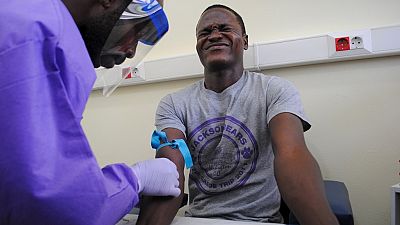Disease
The number of people with high blood pressure has almost doubled in 40 years to over 1.1 billion worldwide, scientists said on Wednesday, with the burden of the condition shifting from the rich to the poor.
In the largest study of its kind analyzing blood pressure in every nation between 1975 and 2015, the scientists said that it has dropped sharply in wealthy countries – possibly due to healthier diets and lifestyles – but risen in poorer ones.
The increases are especially significant in Africa and South Asia, the researchers said, and could be partly due to poor nutrition in childhood.
High blood pressure, also known as hypertension, puts extra strain on the blood vessels and major organs such as the heart, brain and kidneys. It is the world’s top cause of cardiovascular disease, which leads to strokes and heart attacks, and is estimated to cause 7.5 million deaths a year worldwide.
Led by World Health Organization researchers working with hundreds of scientists internationally, this study covered blood pressure measurements from nearly 20 million people and was published in The Lancet medical journal.
In Europe, Britain had the lowest proportion of people with high blood pressure in 2015. South Korea, the United States and Canada had the lowest hypertension rates in the world.
More than half the world’s adults with high blood pressure in 2015 lived in Asia, the study estimated. Some 226 million people in China have high blood pressure, it said, as do 200 million in India.
“High blood pressure is no longer related to affluence – as it was in 1975 – but is now a major health issue linked with poverty,” said Majid Ezzati, a professor at Imperial College London’s school of public health.
He said that while he could not be sure of why the data showed high blood pressure as more of a problem in poorer countries, it may be partly due to overall better health and more consumption of fruit and vegetables in wealthy societies.
In rich countries, the condition is also caught more frequently and earlier, and managed more effectively with medicines, Ezzati said.
Blood pressure is defined by two numbers – systolic pressure, which represents the force with which the heart pumps blood into the blood vessels, and diastolic pressure, a measure of the resistance to the blood flow in the body’s blood vessels.
Both numbers are measured in millimetres of mercury (mmHg). High blood pressure is defined as 140/90 mmHg or higher.
The condition is caused by a number of factors including having a diet high in salt and low in fruit and vegetables, and not taking enough exercise.













Go to video
Immunization at risk: Global health leaders urge action amid rising disease outbreaks
Go to video
Nigeria's market doctors bring healthcare directly to traders
Go to video
Nigerian Football Federation guilty of negligence in footballer's death
01:27
Philippines sees 73% surge in dengue cases this quarter
01:54
Uganda: the infiltration of plastics into agricultural fields and food raise concern
00:47
Malaria confirmed as cause of deadly outbreak in DRC